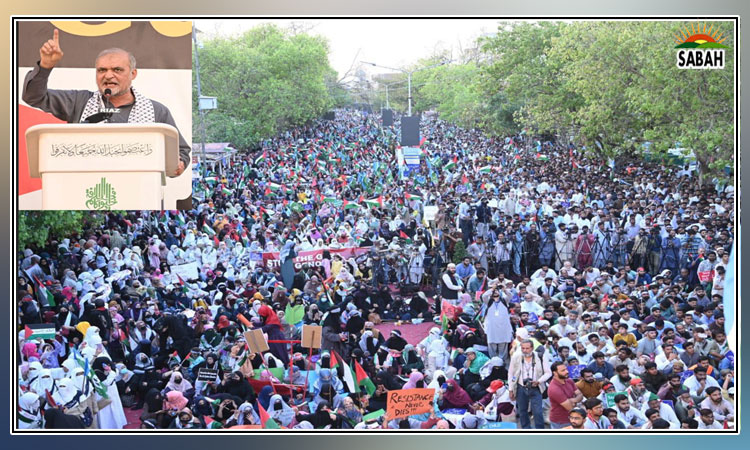Beyond economic struggles…Adnan Anjum
The impending elections have encountered an innate delay extending beyond the initially stipulated 90-day timeframe due to the decision of the Election Commission of Pakistan (ECP) concerning the delimitation of constituencies following the announcement of the census results.
Despite concerns regarding the credibility of the census results, given their significant alterations compared to the provisional results announced in May 2023, the necessary adjustments to the constituencies are within the confines defined by the Elections Act of 2017. A recent amendment to the Elections Act empowers the ECP to exercise greater flexibility in constituency delimitation, allowing it to deviate from strict adherence to existing district boundaries. However, the ECP has not made any public releases regarding the changes in Election Rules. According to Section 239 of the Elections Act, 2017, the ECP is required to share the revised Rules for public scrutiny and provide 15 days for objections or suggestions before their official publication. Once these revisions are complete, the ECP can proceed with the delimitation process.
Read ECP to decide on delimitations soon
Recently, the ECP announced its intention to complete the entire delimitation process, which includes hearings of citizens representations, as well as making necessary amendments, alterations and modifications to the final list of constituencies by December 14, 2023. Consequently, the election programme will require an additional 60 days, with the election date now scheduled for February 11, 2024. Some speculate that this election delay is aimed at providing the caretaker government with the time needed to implement decisions in line with the IMFs nine-month Stand-By Arrangement, scheduled to conclude in March 2023. Therefore, there are serious concerns that elections might face further delays under various pretexts. The existing decision to postpone elections is already problematic, as the Constitution lacks any provision for such delays beyond the 90-day timeframe. Nevertheless, the ECP has defended its decision, citing Article 218(3) of the Constitution.
The continuity of a caretaker setup, introduced into the formal system after the 18th Constitutional Amendment, until the elections are held is not clearly defined by the Constitution. This situation becomes even more formidable considering the hurried enactment of legislation conferring additional powers to the caretaker government. Following the dissolution of the Punjab and KP Assemblies, the caretaker governments have already assumed control for a considerable period in a constitutional vacuum.
In tandem with the delimitation process, the electoral rolls will also undergo revisions. As per the ECPs last update in June 2023, there were a total of 126,066,874 registered voters 71,606,379 in Punjab, 26,529,136 in Sindh, 21,621,211 in KP, 5,274,761 in Balochistan and 1,035,387 in ICT. A comparative analysis of the recent census results and this electoral rolls update reveals that the voter-to-population ratio stands at approximately 52% for the entire country. Punjab exhibits an elevated ratio of about 56% while KP has an average of around 53%. In contrast, the remaining regions exhibit voter-to-population ratios that are below the national average. Sindh has a ratio of 48 while the ICT reports approximately 44%. Balochistans voter-to-population ratio is significantly lower at 35%. The ECP must take necessary steps to improve registration numbers within the timeframe of elections.
Read more Fresh delimitation vital for true representation: ECP
Given the economic trajectory and escalating governance concerns, it is imperative for Pakistan to establish a stable democratic government capable of safeguarding rights and entitlements, thereby preempting potential exploitation by external forces. Achieving this objective hinges upon conducting elections widely regarded as legitimate and accurate, endorsed by a diverse spectrum of political stakeholders rather than a select few. Any decision to further delay the election timeline carries significant repercussions. Extending the caretaker period provides an opportunity for exploitation and stands in opposition to the very spirit of democracy. The only path forward lies in nurturing a stable democracy with an elected government!
Courtesy The Express Tribune












